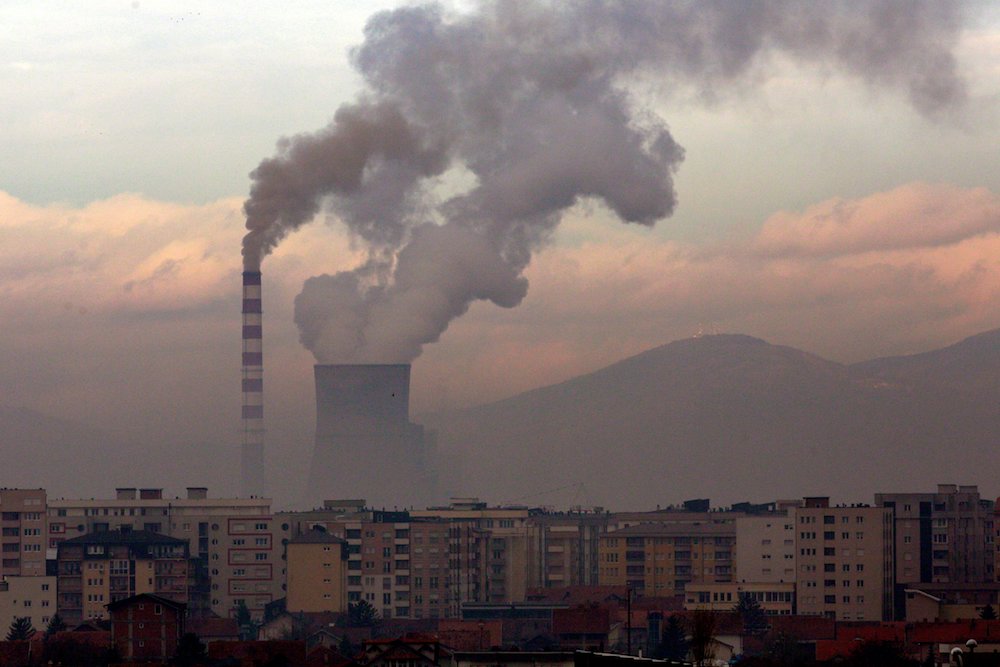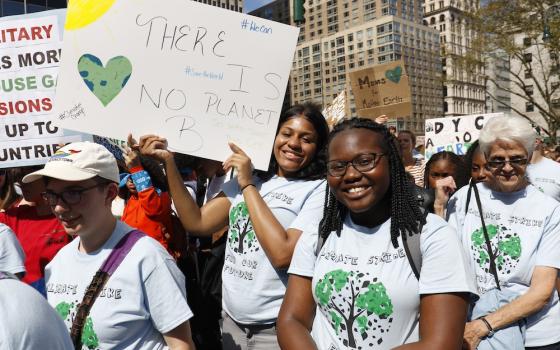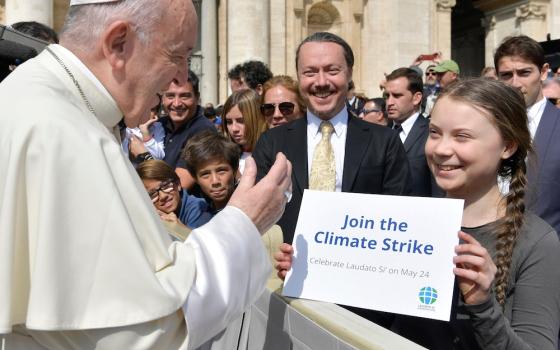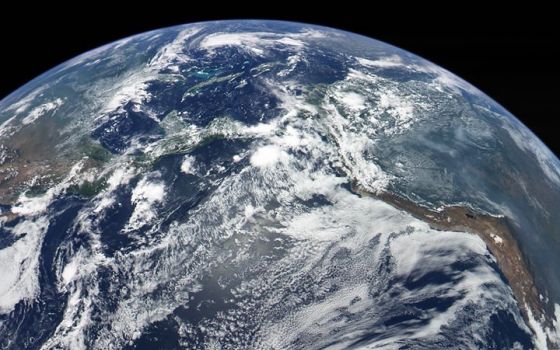
Smoke and steam rise from a coal-fired power plant in Obilic, Kosovo, in 2019. (CNS photo/Ognen Teofilovski, Reuters)
Editor's note: In his Lenten "Reflections on the Care of Creation," Fr. Emmet Farrell examines our impact on the planet and our responsibility, as people of faith, for our common home. You can sign up here to receive Fr. Farrell's reflections in your inbox every Monday, Wednesday and Friday from Feb. 17 to April 2.
See:
In 2012, writer and climate activist Bill McKibben wrote of "three simple numbers that add up to global catastrophe."
The first number, he says, is 2 degrees Celsius. In the 2009 Copenhagen Accord, the world's countries agreed that the average increase in global temperature should be kept below that limit to avoid disastrous impacts, but they failed to make binding commitments. Adds McKibben, "So far, we've raised the average temperature of the planet just under 0.8 degrees Celsius, and that has caused far more damage than most scientists expected. … [I]n fact, many scientists have come to think that two degrees is far too lenient a target."
McKibben's second number is 565 gigatons. "Scientists estimate that humans can pour roughly 565 more gigatons of carbon dioxide into the atmosphere by midcentury and still have some reasonable hope of staying below two degrees," he writes, adding, "But, in fact, computer models calculate that even if we stopped increasing CO2 now, the temperature would likely still rise another 0.8 degrees, as previously released carbon continues to overheat the atmosphere. That means we're already three-quarters of the way to the two-degree target."
The third number is 2,795 gigatons. "The number describes the amount of carbon already contained in the proven coal and oil and gas reserves of the fossil-fuel companies … and [it is] higher than 565. Five times higher. … At this point, effective action would require actually keeping most of the carbon the fossil-fuel industry wants to burn safely in the soil, not just changing slightly the speed at which it's burned."
The fossil-fuel industry is the environmentalist's enemy. These companies should transform themselves into sustainable "energy companies." The huge economic incentive working against that, McKibben explains, is that "the fossil-fuel industry is allowed to dump its main waste, carbon dioxide, for free. … So pure self-interest probably won't spark a transformative challenge to fossil fuel. But moral outrage just might. It could, plausibly, give rise to a real movement."
Advertisement
Judge:
Never have we so hurt and mistreated our common home as we have in the last two hundred years (Laudato Si', 53).
We see how environmental deterioration and human and ethical degradation are closely linked (Laudato Si', 56).
Climate change is an issue of justice. The industrialized nations, representing less than 20 percent of the world's population, are responsible for 70 to 80 percent of the annual greenhouse gas emissions. Yet those who live in poor and developing countries will be most seriously affected by global warming ("Climate Change and Christian Witness: Church of the Brethren Statement on Global Climate Change").
Act:
- Investigate what causes global warming and how.
- Break the silence — talk to others about climate change.
- Devise your plan to fly and drive less in order to shrink your carbon footprint.






